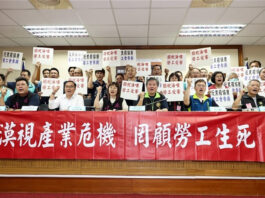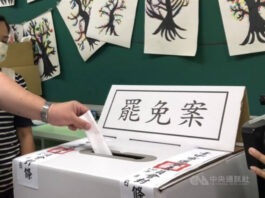In an unprecedented political development, Taiwan’s Central Election Commission (CEC) has announced recall votes for 24 Kuomintang (KMT) lawmakers on July 26, marking one of the largest recall movements in Taiwan’s democratic history. This initiative emerges amid rising tensions between civil society and the KMT over controversial legislative measures, budget cuts, and security policies.
The Political Context: What’s Driving the Recall Movement?
The recall campaign against the KMT has been ignited by widespread public discontent with the party’s recent legislative moves, including efforts to slash the central government’s proposed NT$3.13 trillion budget for 2025 and restrict national defense measures. The campaign is backed by civil society activists and supported by the ruling Democratic Progressive Party (DPP), which sees the KMT’s legislative maneuvers as undermining national security and democratic resilience.
While KMT lawmakers claim the recall is a politically motivated attack to eliminate opposition, proponents argue it is a vital democratic process for holding representatives accountable.
The Numbers: An Unprecedented Recall in Taiwanese Politics
According to the CEC:
- A total of 35 KMT lawmakers were targeted for recall, making this the largest campaign of its kind.
- 24 recall votes have been confirmed for July 26.
- 7 recall petitions remain under review by local election authorities.
- 15 recall attempts were launched against the ruling DPP, but only 2 remain active.
This is the first time in Taiwan’s democratic history that nearly all KMT lawmakers elected in a general election have been targeted for recall.
The Stakes: What Will Happen if the Recalls Succeed?
For any recall to be valid:
- The “Yes” votes must outnumber the “No” votes.
- The “Yes” votes must also comprise at least 25% of all eligible voters in the candidate’s constituency.
If successful:
- The ousted lawmaker must vacate their seat.
- A by-election must be held within three months.
- The recalled candidate is barred from running in that by-election.
If failed:
- No recall initiative can be filed against the same legislator during their term.
Historical Context: A New Chapter in Taiwan’s Recall History
Since the Public Officials Election and Recall Act came into effect, only a handful of recall votes have succeeded:
✅ 2021: Legislator Chen Po-wei (Taiwan Statebuilding Party) was recalled.
✅ 2020: Kaohsiung Mayor Han Kuo-yu (KMT) was recalled.
Recalls targeting legislators such as Tsai Cheng-yuan (2015), Huang Kuo-chang (2017), and Freddy Lim (2022) failed due to insufficient voter turnout.
What This Means for Taiwan’s Political Climate
If the recall campaign proves successful, it would dramatically reshape the legislative landscape, making room for by-elections that could shift the balance of power. This unprecedented campaign signals deep public discontent and may serve as a warning to lawmakers across party lines about prioritizing citizens’ interests over partisan gains.
It also highlights:
- The growing influence of civil society in Taiwanese politics.
- The evolving role of recall votes as a democratic tool.
- The tensions between national security priorities and fiscal policies.
For both the KMT and DPP, the results could redefine the future of Taiwan’s democracy.
FAQs
What triggered the recall campaign?
The campaign was launched by civil society groups in response to KMT and TPP legislative efforts that allegedly weakened Taiwan’s constitutional order and national defense policies.
How many KMT lawmakers are being targeted?
A total of 35 KMT lawmakers were targeted, with recall votes confirmed for 24 on July 26, and 7 still pending review.
What are the thresholds for a recall to be successful?
The “Yes” votes must outnumber the “No” votes and comprise at least 25% of the total eligible votes in the lawmaker’s constituency.
What happens if the recall is successful?
The recalled lawmaker must vacate their seat, and a by-election must be conducted within three months.
What are the implications for Taiwan’s democracy?
The recall initiative is a landmark test of accountability and may reshape legislative priorities, making lawmakers more attuned to public sentiment.



